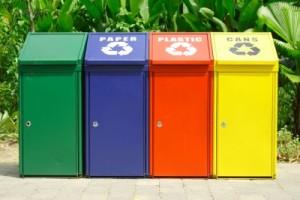Recycling Made Easy by Shawnee County
- October 23 2012
- 3 min read
Recycling Made Easy by Shawnee County

Shawnee County is launching a recycling initiative in the middle of January next year. Residents will now have to make some changes to their solid waste segregation practices.
Customers are spared the troubles of recycling the solid waste; recyclables will be sorted at the material recovery facility at Waste Management Inc.
The Recycling Program in Shawnee County
A primer will be sent out to all the residents with information on the recyclable and non-recyclable materials. Lists will also be put up on the bins to indicate what can be recycled. So the responsibility to keep out non-recycles from the bins, weighs heavily on the residents. Addition of non recyclables would contaminate the entire truck load of waste, making it unsuitable for recycling.
Residents are also instructed to leave a space of minimum of 3 feet on all sides of the bin for easy clearance. If the residents do not take care to dispatch the recyclables into the bin, the county will have to manually sort out the trash, which would increase the recycling service expenses.
It is hoped that a maximum number of residents participate in the recycling program in an effort to minimize the expenses of solid waste services. The program also aims to drive people to adopt healthier lifestyles that involve the usage of environment sensitive products like wholesale reusable bags.
Recycling Materials and using Wholesale Reusable Bags in Shawnee County
Materials that can be recycled include: plastic bottles, glass bottles, buckets, cereal boxes, aluminum cans, newspapers, phone books, brown paper, corrugated cardboard and tin cans.
Remove plastic bottle lids before you throw them. Hazardous wastes such as fluorescent light bulbs, batteries, used oil, paint, pesticides and herbicides should be dispatched a the Household Hazardous Waste facility.
Don't throw newspaper bags, food stained aluminum foils, Styrofoam, light bulbs and food waste into the recycle waste bins.
Read the educational packet that is delivered along with your recycling bin. The booklet includes answers to commonly asked questions on the recycling program, information about the products that can and cannot be recycled, and about the household hazardous waste program.
Use wholesale reusable bags to reduce plastic waste. Exercise care while dumping material into recycling bins; do not throw non-recyclable material that can contaminate the entire trash and cause the trash load to be rejected.
Place your trash at a distance of 3 feet from the recycling bin. The trucks require at least so much distance in order to lift and empty the contents of the bin into the truck.
Source: http://cjonline.com/news/2012-10-21/county-aims-make-recycling-transition-easy-possible
Gain access to Orders, Tracking, Custom Options and Much More!